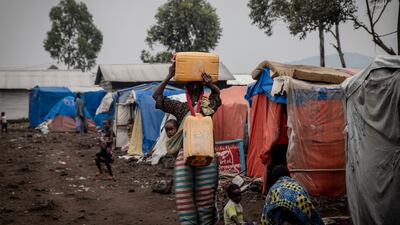The UN’s refugee agency is preparing for the worst as climate change threatens to drive millions of people out of their homes, a leading official said.
Andrew Harper, UNHCR’s special adviser on climate action, said he expected a significant rise in the number of people displaced by global warming.
Speaking to the Berlin Climate and Security Conference on Monday, he said the agency was planning for worst-case scenarios as time ticks down to meet global climate targets.
A report last month said the effect of climate change would be far worse if the target of limiting global warming to 1.5°C is breached.
“At the moment, the scenarios which are looking towards a 1.5°C to warming are becoming increasingly impractical,” Mr Harper said.
“We have got an obligation and a responsibility not only to be thinking positively but also to be preparing for the worst.
“We’ve also got a responsibility, even though we are a humanitarian agency, not just to react or wait for people to cross the border in order to provide protection.”
Many countries that are highly vulnerable to climate change are developing nations that are poorly equipped to manage the effects.
The UN estimates that weather emergencies have forced more than 20 million people out of their homes every year since 2010.
Developing countries are demanding that November’s Cop26 climate summit in Glasgow be used to steer more money their way.
A target of $100 billion in annual support to the global south has not been met, the UN’s climate agency said.
Mr Harper said the majority of the world’s refugees lived in countries that were poorly prepared for climate change.
“If we expect that climate change is going to disrupt food security, access to water, challenge governance and possibly turn fragile states into failed states, then yes, we will expect a significant increase in the numbers of people who are being made vulnerable,” he said.
“That could lead to conflict and that will lead to people moving.”
A German expert panel said in May that fighting climate change was essential to preventing future refugee crises in Europe.
It said countries should consider setting up “climate passports” to allow refugees from high-risk countries to settle elsewhere.


